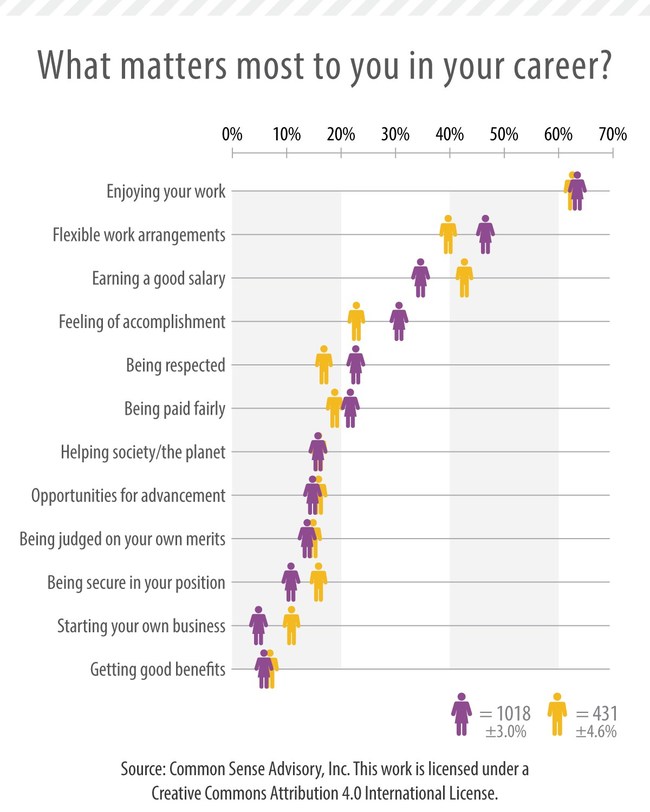Issues related to gender, the workplace, and family are important social and political concerns. “Gender and Family in the Language Services Industry” is the first in a series of reports by independent market research firm Common Sense Advisory (CSA Research) dealing with gender and family issues among those who are employed in the language industry – translation, localization, interpreting, and related tasks – or who work with language services.
Earnings Reports
Economic studies show that jobs considered “women’s work” typically show lower pay than those associated with men, and that wages fall as more women enter a field. By contrast, both genders earn above-average wages in language services: US$50,900 in North America and $34,800 in Europe (versus economy-wide averages of US$49,630 and roughly US$20,000, respectively).
“These results are generally positive. Despite significant downward price pressures, language services professionals’ earnings are in line with – or exceed – those of other skilled professionals, without the penalty often associated with ‘women’s work,'” comments Arle Lommel, a senior analyst at CSA Research.
Key Findings and Dataset
Based on 2,200 global responses, the CSA Research report shines light on topics ranging from pay to personality to promotions. Key findings from the report, which is available for free with registration, include:
- The world-wide language services gender pay gap is 19%. Adjusting for employment status, men still make 14% more than women. Earning disparities are highest in top and middle management and executive positions.
- The gender gap is lowest in North America, but higher in Europe. However, Europeans believe they are closer to pay equality than others and Americans believe their employers are less equitable than others.
- Majorities believe that gender issues do not affect them personally. Women are more likely to believe they have been personally affected, but both men and women, tend to see gender issues as important problems that affect other people.
- Both men and women see women as having more positive qualities as employees. Respondents of both genders tend to agree that women have more positive qualities – including those important for leadership roles – than men do. Nevertheless, these qualities do not convert into advancement opportunities.
